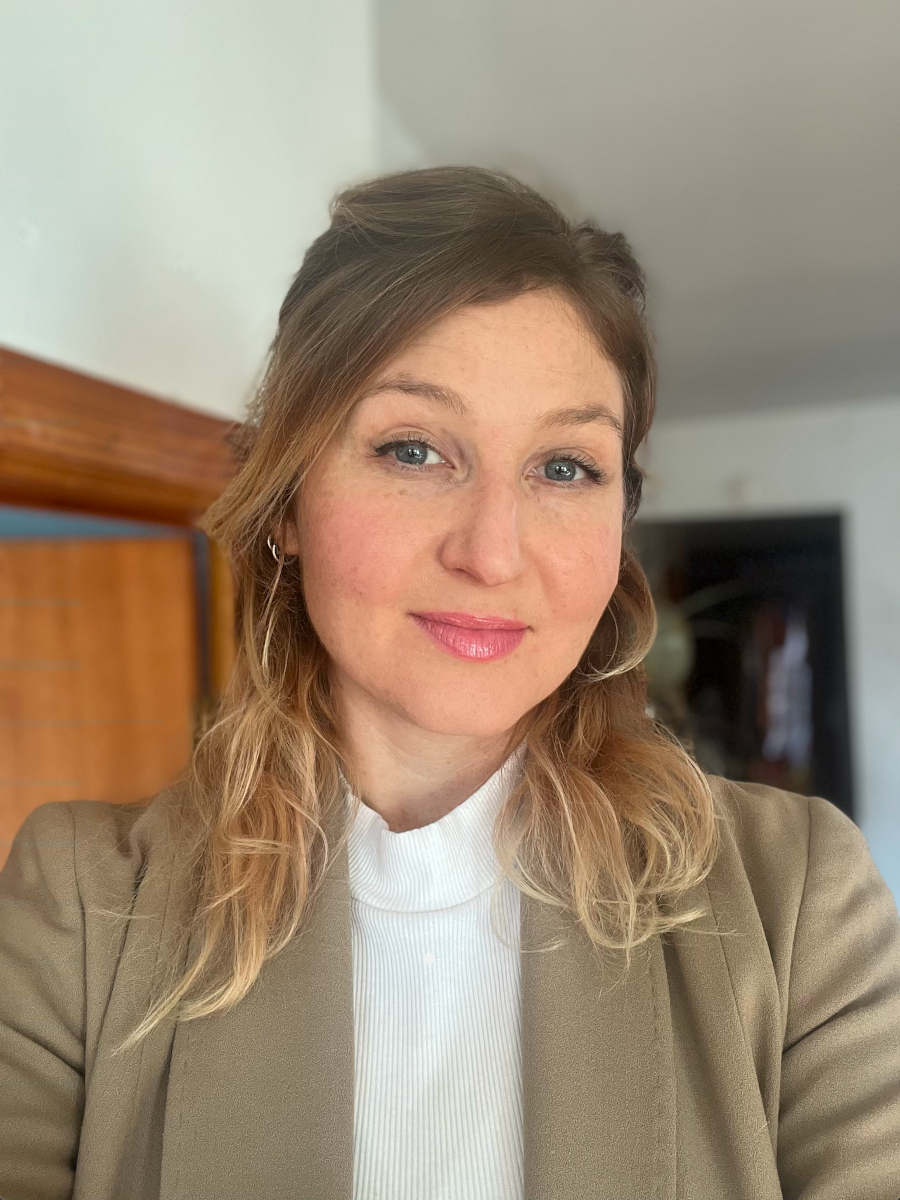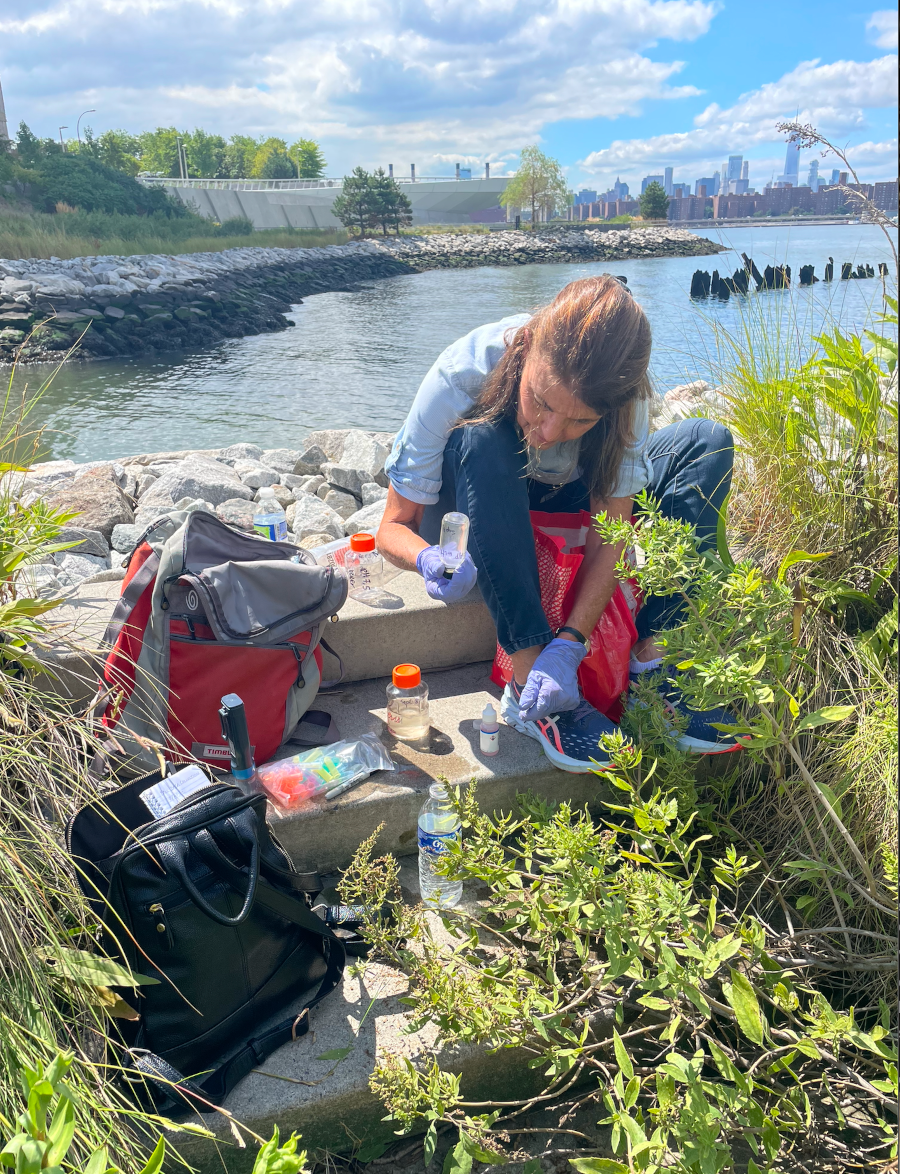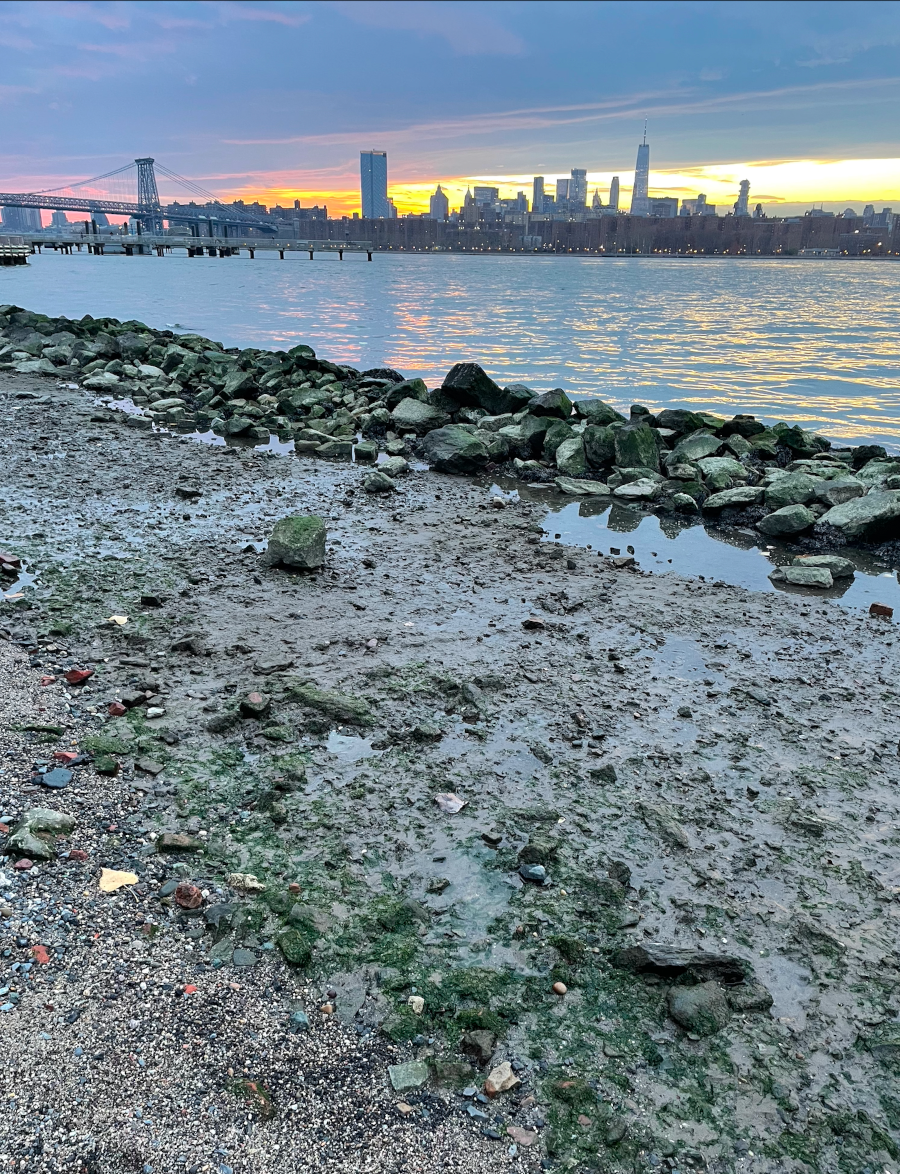by Caitlin Lynch
ABOUT THE AUTHOR

Caitlin Lynch
Caitlin Lynch is a current graduate student at Brooklyn College in the Earth and Environmental Sciences program. Previously, she obtained an Associate’s degree from LaGuardia Community College in the Environmental Science program where she found a passion for fieldwork, research and wetland restoration. During her time at LaGCC she participated in the CRSP research program as well as an internship with the Newtown Creek Alliance supporting their intertidal habitat projects. She is currently working with the Science and Resiliency Institute of Jamaica Bay collecting and analyzing field data. When she is not knee deep in the mud, she enjoys riding her bike around the city, volunteering at beach clean-ups and learning to identify as many plants as possible.
In my first semester at LaGuardia Community College in 2021, I applied to take an Honors level Biology 201 course taught by Prof Lucia Fuentes. Like all Honors courses, approval for enrollment was required, however this process was easily facilitated after I requested this of my course enrollment advisor. The course itself was a small group (6-7) of very attentive and proactive students. Although we were limited by online participation, due to COVID-19 quarantine policy, we were able to learn remote lab skills, biographical research skills and produce a final research paper at the end of the course. Due to encouragement from Prof Fuentes, I submitted my final paper to the Honors Journal where it was accepted and published, which was my first published scientific paper. Prof Fuentes also told me about the CUNY Research Scholars Program (CRSP), a CUNY-wide year-long paid research opportunity open to all community college students of any discipline. Because of the exposure I had to research and lab skills in the Honors course, I felt prepared for and interested in pursuing independent research. I applied to the CRSP program after meeting with Prof Fuentes to develop a research question and methodology. We decided on a project to collect, analyze and compare microbiome community structure (by collecting eDNA) in sediments from three different restored wetland sites along the East River. This was the first time I had conducted field data collection and practiced lab skills in-person. At the end of the program, I had the opportunity to participate in the final symposium among all the colleges and students in the CRSP and I was selected to present my research as a featured speaker. This was a great learning experience for me to prepare a scientific presentation and communicate our results in a clear and accessible way.

Collecting water and mud samples from the wetlands area in Hunter's Point.

Mud and water sample collection area in Bushwick inlet park.
Going through the process of a research project - including conducting a literature review, developing a research question, collecting data, analyzing data, synthesizing data and presenting results - was an incredible experience that I would not have known about if I had not attended the Honors Biology course. When I started at LaGuardia I knew I wanted to study environmental science and knew that I enjoyed working outdoors in nature, but I did not know that I liked research or was skilled at it. Participating in CRSP not only built my technical and communication skills, but it helped give me the confidence to apply to graduate school and pursue a thesis track. I am now attending Brooklyn College in the Earth and Environmental Science graduate program and developing a research project with my thesis advisor, closely related to my CRSP research, focused on measuring sediment geochemical processes in restored wetlands. Thanks to LaGuardia staff and the opportunities I learned about through the Honors course, I am able to pursue advanced scientific research and gain essential experiences for a career in environmental science.